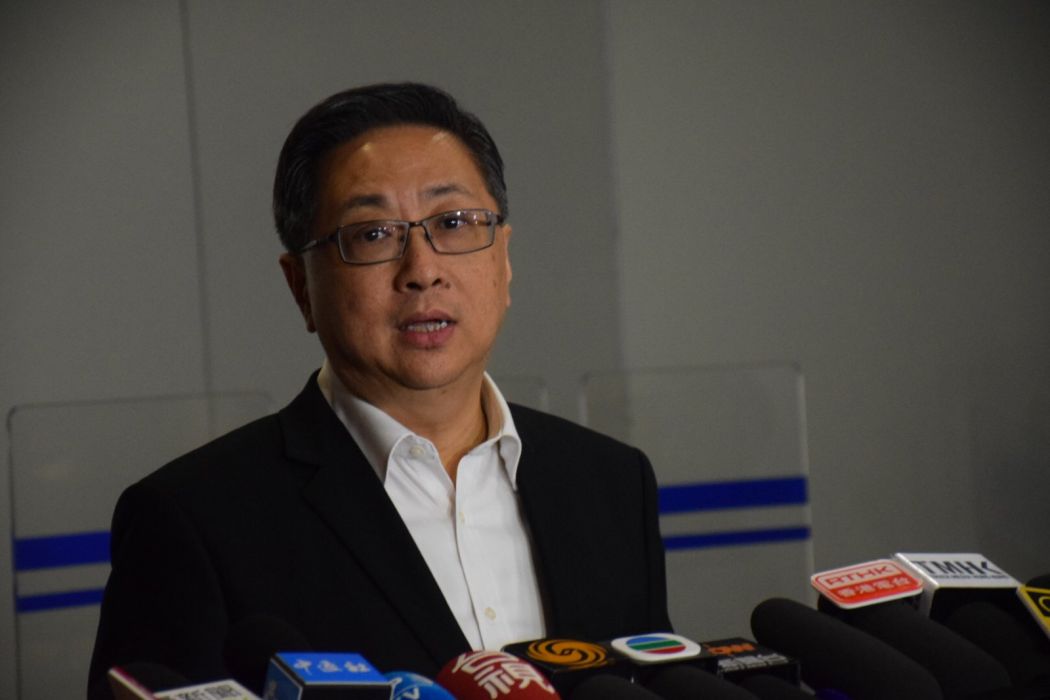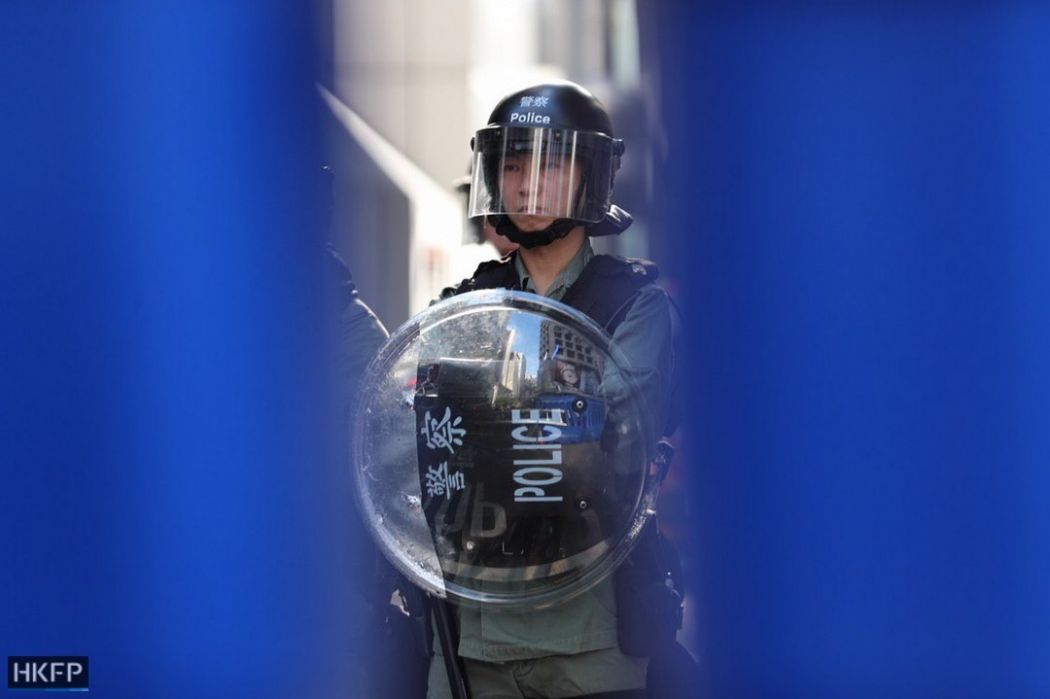Hong Kong barely has a government these days but it most certainly has a police force. Such is the dysfunctionality of the system that the force is practically the only part of the administration responding to the burgeoning protest movement.
The headless chickens occupying the government complex in Tamar have either gone into hiding or are merely clucking around hoping against all reasonable hope that somehow the protests will disappear. In the meantime, the administration has surrendered its responsibilities to the police as the last line of defence against the wrath of the people.

In functioning political systems the police are under the control of the government; in Hong Kong, the government has effectively handed over control to the police. The price of this handover is high because the ascendency of the police also means that the force is increasingly displaying its lack of interest in the rules that are supposed to govern its operations.
And, just in case there was a scintilla of doubt over the status of the force, it was dispelled on Monday by the unprecedented State Council press conference where Mainland officials went out of their way to heap praise on the police, while offering little more than routine support to Carrie Lam, the Chief Executive in Name Only (CENO) who was acknowledged for reflecting on her mistakes but for not much else.
When Matthew Cheung tentatively suggested that there might be a need for an apology over police action he was immediately slapped down by police associations and meekly retracted, not once but twice.
The force is now barrelling its way into the centre of the political arena, banning marches, regularly issuing demonstration crowd size estimates to belittle their strength and allowing the police unions to make astonishingly rabid attacks on protesters without fear of repercussions.

Meanwhile, the rules governing police operations are being flagrantly flouted. Officers now routinely remove their number tags when involved in crowd control, tear gas canisters that should be fired above the heads of targets are now launched at chest level, and then there’s the police response to gang thuggery in Yuen Long.
Senior officers who have been explaining this have ended up fuelling the fires of suspicion over, at worst, collusion and at best, wilful negligence.
Such is the power of the police these days that it is now clear that the main reason why the administration will not allow the establishment of an independent inquiry into events surrounding the extradition saga is that this is opposed by the police, fearful of what might be unearthed were the inquiry to be truly independent.
Hong Kong’s police force worked long and hard to recover its tarnished reputation from a low point in 1974, when the Independent Commission Against Corruption was established. This was followed by a police riot protesting against its activities and a backdown by the colonial government authorising an amnesty for corrupt officers, who were also allowed to keep their ill-gotten gains on the understanding that a line would now be drawn under rampant corruption.
Public trust in what was called the ‘best police force money can buy’ was understandably low and the police had to work hard to persuade the public of their integrity and ability to uphold the law. It took herculean efforts and the dedication of hard-working and honest police officers, to assure the public and restore the reputation of the force.

But hard-won reputations can be lost much quicker than they are gained. Distrust of the police is spreading fast; they are taunted at rallies for being triads, and ordinary citizens engaging in peaceful protests increasingly regard the police as the enemy.
This impression is reinforced by the stream of pro-government personalities lining up to shower gifts on policemen and offer their support. In effect, they are doing their best to assert where police political allegiance lies, regardless of the tradition of a politically neutral force.
The police rank and file meanwhile remain on the front line, taking abuse and sweltering in the summer heat and humidity, regardless of how they personally feel about becoming the battering ram for a government that has ceased to govern. Even officers who might have felt sympathy for the demonstrators find it harder to do so while being abused. This, in turn, leads to a vicious circle of police officers literally hitting out and the demonstrators becoming more and more convinced that they are the enemy.
At the top of the force stands the lacklustre police chief Stephen Lo, a lifelong bureaucrat who gives every impression of being more suited to sitting behind a bank clerk’s desk than performing the complex role of Police Commissioner. His credibility among the rank and file is, apparently, rather low but no one dares touch him because, as matters stand, the police are beyond reproach in official circles.

Right up to two months ago it was still possible to describe the Hong Kong police force as being highly successful because it enjoyed the citizens’ respect. This respect was not earned because it had the biggest weapons. Now, as respect fades only the weapons remain.
The rapid politicisation of the police force has massive implications for the rule of law in Hong Kong. Whatever else happens, this legacy might prove to be the most toxic.
